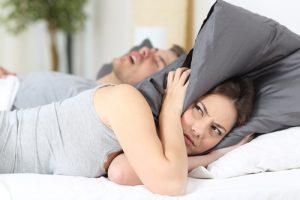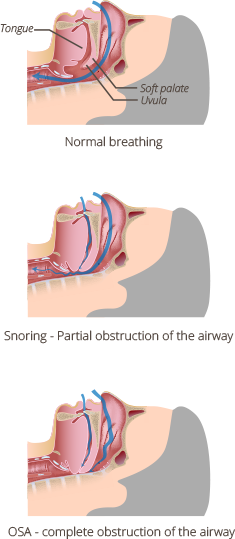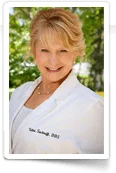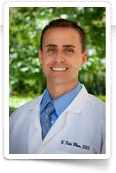Sleep Apnea
Do You Snore?
 Having an Obstructed Sleep Airway is a condition which is characterized by pauses in breathing during sleep. Though one of the most prominent symptoms of the disorder known as obstructive sleep apnea (OSA) is loud snoring, sleeping disorders can also cause a person to wake in the middle of the night gasping for air, and they can lead to serious health risks when left untreated. In addition, many men and women do not realize they have a problem because they are sleeping. Oftentimes, a partner or family member first notices the symptoms of snoring and gasping and urges the person with the condition to seek treatment.
Having an Obstructed Sleep Airway is a condition which is characterized by pauses in breathing during sleep. Though one of the most prominent symptoms of the disorder known as obstructive sleep apnea (OSA) is loud snoring, sleeping disorders can also cause a person to wake in the middle of the night gasping for air, and they can lead to serious health risks when left untreated. In addition, many men and women do not realize they have a problem because they are sleeping. Oftentimes, a partner or family member first notices the symptoms of snoring and gasping and urges the person with the condition to seek treatment.
Our dentists and dental professionals at Pomerado Cosmetic Dentistry have advanced training in dental sleep medicine and offer state-of-the-art treatment options to address sleep apnea. We can help you achieve a more peaceful night’s sleep and reduce risks to your health.
- Sleep Apnea Symptoms
- Sleep Apnea Causes
- Sleep Apnea Risks
- Sleep Apnea Evaluation
- Sleep Apnea Treatments
- Why Choose Pomerado Cosmetic Dentistry for Sleep Apnea Treatment?
- Additional Sleep Apnea FAQs
What Are Common Signs and Symptoms of Sleep Apnea?
The first signs of OSA can include severe snoring, pauses in breathing for several seconds, feeling sleepy during the day, gasping for air, and teeth grinding. When left untreated for a prolonged period of time, lack of proper sleep can cause a person to experience symptoms like:
- Frequent Headaches
- Daytime Fatigue When Driving or Working
- Memory Loss
- Acid Reflux
- Insomnia
- Depression
What Causes Sleep Apnea?
 There are three forms of sleep apnea: Obstructive Sleep Apnea (OSA), which is the most common; Central Sleep Apnea (CSA); and Complex Sleep Apnea. While sleeping, it is normal for the soft tissues and muscles in oral cavities to become relaxed. However, when they become excessively relaxed, they narrow or even completely block airways in the nose and throat. This is an indication that OSA has developed. CSA is a less common variation of sleep apnea, but just as threatening. Central Sleep Apnea occurs when the muscles that regulate breathing are not getting the proper signals from the brain at the proper time. CSA can be more common in people who have had a brain infection, a stroke, a cervical or spinal condition, or other afflictions of the brain stem. Complex Sleep Apnea, sometimes referred to as “Mixed Sleep Apnea,” is a combination of both OSA and CSA.
There are three forms of sleep apnea: Obstructive Sleep Apnea (OSA), which is the most common; Central Sleep Apnea (CSA); and Complex Sleep Apnea. While sleeping, it is normal for the soft tissues and muscles in oral cavities to become relaxed. However, when they become excessively relaxed, they narrow or even completely block airways in the nose and throat. This is an indication that OSA has developed. CSA is a less common variation of sleep apnea, but just as threatening. Central Sleep Apnea occurs when the muscles that regulate breathing are not getting the proper signals from the brain at the proper time. CSA can be more common in people who have had a brain infection, a stroke, a cervical or spinal condition, or other afflictions of the brain stem. Complex Sleep Apnea, sometimes referred to as “Mixed Sleep Apnea,” is a combination of both OSA and CSA.
A range of possible causes have been linked to the development of sleep apnea. Obesity is often cited as the most common contributor; however, genetic factors, orofacial structure irregularities, and even exposure to tobacco smoke may be potential causes of sleep apnea. No matter the age, weight, or lifestyle, sleep apnea can develop in anyone—including individuals who have none of the risk factors that have been associated with the condition.
What Are the Risks of Sleep Apnea?
Serious health conditions can result from untreated sleep apnea, including:
- Weight Gain
- Diabetes
- High Blood Pressure
- Heart Disease
- Stroke
- Cancer
- Sudden Cardiac Death
Fortunately, there are a number of treatment options – including customized oral nightguards – that can address sleep apnea and help you achieve healthy sleep.
Sleep Apnea Evaluation
Dr. Valeri Sacknoff and Dr. Robbi Wilson at Pomerado Cosmetic Dentistry are committed to offering patients the best possible care related to your overall health. Recently, all members of our team received advanced training in the field of Sleep Medicine from the OSA University, which offers dental education courses on screening and treatment for sleeping disorders. Once you have been screened by completing a questionnaire and having a visual exam of your mouth, it will be determined if there may be cause for concern. A simple at-home sleep test worn in the comfort of your own bed will be sent to you and then evaluated by a board-certified sleep physician who will provide your results as Normal, Slight, Moderate, or Severe. Your primary care physician will be informed and included in this important part of your medical care.
Once you have been diagnosed, one of our experienced dentists in Poway can discuss the ideal sleep treatment for your needs – one that can help you maintain a healthy flow of air while sleeping and reduce the symptoms and risks associated with an obstructed airway. It’s also important to note that medical insurance typically covers this treatment at our practice.
Sleep Apnea Treatments
Oral Sleep Appliances and snoreguards are some of the most common and effective treatments for sleep apnea. These custom-made oral appliances can keep the air passages open and flowing during sleep. They are designed to fit comfortably in the mouth and can also prevent patients from grinding their teeth during the night. Oftentimes, these treatment options effectively relieve the symptoms of sleep apnea and allow the patient to sleep uninterrupted. Unlike CPAP machines, customized oral appliances do not rely on a large, loud apparatus that covers the mouth and nose to work with pressurized air forcing the airway to open. They look very much like orthodontic retainers and are specifically designed to help individuals maintain a normal opening for a healthy flow of air to pass through during sleep.
Why Choose Pomerado Cosmetic Dentistry for Sleep Apnea Treatment?
Dr. Sacknoff and Dr. Wilson here at Pomerado Cosmetic Dentistry have made the treatment of sleep apnea a strong focus of their careers. In fact, Dr. Sacknoff attended Obstructive Sleep Airway University as part of her continued study of the condition, and Dr. Wilson has also pursued additional training in the field of dental sleep medicine. Additionally, nearly all members of the experienced dental team here at our practice have attended OSA University for extensive training and education on sleep disorder screening and treatment.
Since many new advances in the treatment of obstructive sleep apnea involve customized oral appliances to help keep breathing passages open during sleep, dentists who are qualified to treat sleep apnea conditions are uniquely positioned to provide this kind of care. They can also assess concerns such as TMJ Disorder, bruxism, bite irregularities, and other conditions that may be associated with sleep apnea. Our expertise with sleep apnea and our commitment to collaborating with other sleep professionals to ensure patients receive the most effective, comfortable care possible are just some of the many reasons Pomerado Cosmetic Dentistry can be an ideal choice for sleep apnea treatment.
For more information about how to improve the quality of your sleep and the type of oral appliance that can eliminate your snoring, please call Pomerado Cosmetic Dentistry at 858-485-6900 to schedule a consultation.
Additional Sleep Apnea Frequently Asked Questions
Who is at a high risk for sleep apnea?
According to the Mayo Clinic, individuals who are overweight, suffer from hypertension (high blood pressure), and have persistent nasal congestion may be at a higher risk of sleep apnea. Others who may have an increased risk include smokers, diabetics, asthmatics, and those who have narrowed airways. Males and people with a family history of sleep apnea are also said to be at an elevated risk.
What makes sleep apnea worse?
A number of conditions and lifestyle habits have been found to possibly make sleep apnea worse, including alcohol consumption, smoking, sleeping on your back, certain medical conditions (such as Type-2 diabetes and high blood pressure), medicines such as muscle relaxants and opioids, and weight gain.
What does sleep apnea sound like?
While loud snoring is often a significant indication of sleep apnea, there are other audible (or inaudible) signals that can be observed as well in some cases. Sounds of gasping or choking during sleep, grinding the teeth, or abruptly waking up from a deep sleep can also be warning signs. Sometimes, the very lack of sound is a warning. If your loved one is completely silent during sleep for an extended period, without even a slight “whooshing” sound of breath, they may be suffering from a breathing pause.
What is considered severe sleep apnea?
According to Harvard researchers, a classification of “severe” sleep apnea can be based on the number of sleep apnea events that occur during the night as well as the level of oxygen desaturation in the blood. This can be recorded during a sleep study. A person who has 30 or more sleep apnea disturbances per hour of sleep may have a severe level of the disorder.
How does sleep apnea affect the heart?
Sleep apnea events can reduce the normal level of oxygen in the blood. This can lead to increased blood pressure and have a negative effect on the cardiovascular system. OSA may also raise the risk of irregular heartbeat, recurrent heart attack, and even sudden death.
Is OSA the only type of sleep apnea?
While OSA (Obstructive Sleep Apnea) is considered the most common form of the condition, it is certainly not the only one. Central Sleep Apnea (CSA) is a type of sleep apnea that is characterized by the brain’s inability to send the correct signals (and at the correct time) to muscles responsible for breathing during sleep. This makes CSA different from OSA in that OSA is characterized by muscles and tissues that relax to such an extent during sleep that they block the airways. The third type of sleep apnea is called Complex Sleep Apnea or “Mixed Sleep Apnea,” which is essentially a mixture of both CSA and OSA. The latter two types may be less common than Obstructive Sleep Apnea; however, they are equally as serious and must be treated in order to reduce potentially life-threatening health risks.
If you would like more information on sleep apnea, or if you are ready to schedule a consultation, please contact Pomerado Cosmetic Dentistry today.









Facebook Fan
Others Are Saying